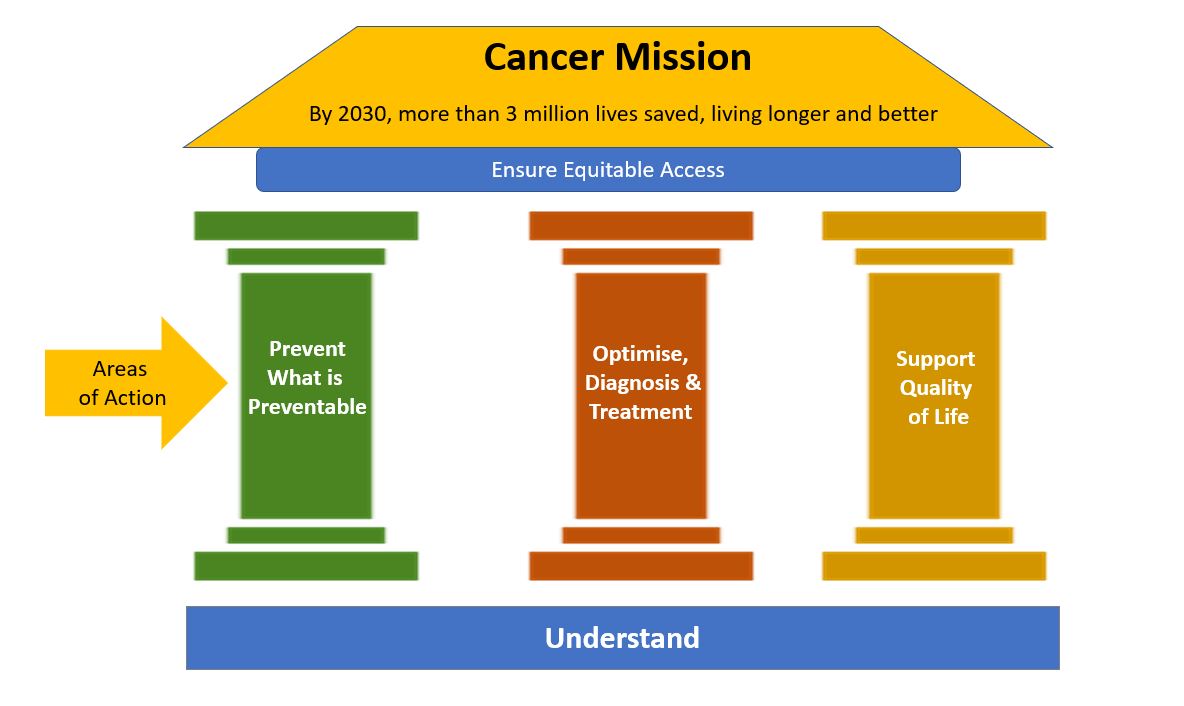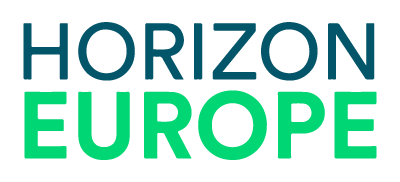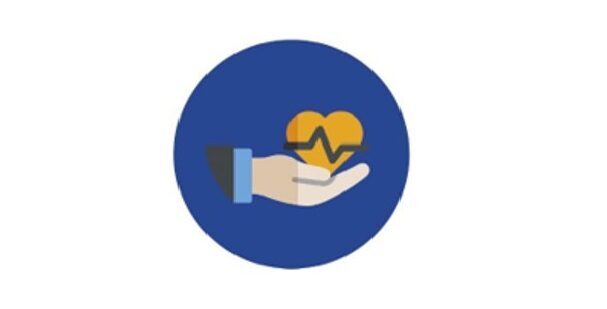Conquering Cancer: Mission Possible
As an integral part of the Horizon Europe Framework Programme for Research and Innovation (2021-2027), a set of European Research and Innovation Missions aim to deliver solutions to some of the greatest challenges facing Europe. In the area of Health, cancer is one of the significant challenges.
Cancer: a growing challenge for Europe
Cancer is an umbrella term for more than 200 diseases. Cancers exhibit common, the uncontrolled growth and spread of abnormal body cells, affecting tissues and organs.
2.6 million people in the EU-27 are diagnosed with cancer each year. This number is expected to increase rapidly because of Europe’s ageing population, unhealthy lifestyles and unfavourable environmental conditions. Without strong action, it is anticipated that the number of cancer cases in Europe will increase by 25 % by 2035. Although survival rates of several cancer types have improved over the last decades, cancer still kills 1.2 million people in the EU-27 each year.
The Cancer Mission will address the whole cancer control continuum, i.e. from prevention of risk factors to survivorship support and end-of-life care, for all ages and cancers, including rare and poorly understood cancers8, cancers in children, adolescents/young adults and the elderly, cancers in socially or economically vulnerable families and among people living in remote areas, across all Member States. The first draft of the Cancer Mission has been Published and is available Here
The Goal of the Cancer Mission
The overall goal of the Mission on Cancer has been formulated as:
“By 2030, more than 3 million lives saved, living longer and better”.
Effective interventions are needed to improve 1. prevention, 2. diagnostics and treatment of cancer, and 3. the quality of life of cancer patients, survivors, and their families and careers. As such, these areas are considered the pillars of the Mission. Effective interventions in these areas all require a thorough understanding of cancers, causal factors and mechanisms, and their impact, Furthermore, effective policy measures are needed to ensure equitable access to high-quality prevention, diagnostics and treatment, care and support, including access to research funding and knowledge.
The following Illustration outlines the ‘Intervention Areas for Actions

The Board’s Draft Mission outline presents 13 recommendations for bold actions to understand cancer, its risk factors and impact; to prevent what is preventable; to optimise diagnostics and treatment; and to support the quality of life of people living with and after cancer, while ensuring equitable access for all.
Cancer Mission – 13 Recommendations
- Launch UNCAN.eu – a European Initiative to Understand Cancer
- Develop an EU-wide research programme to identify (poly-) genic risk scores
- Support the development and implementation of effective cancer prevention strategies and policies within Member States and the EU
- Optimise existing screening programmes and develop novel approaches for screening and early detection
- Advance and implement personalised medicine approaches for all cancer patients in Europe
- Develop an EU-wide research programme on early diagnostic and minimally invasive treatment technologies
- Develop an EU-wide research programme and policy support to improve the quality of life of cancer patients and survivors, family members and carers, and all persons with an increased risk of cancer
- Create a European Cancer Patient Digital Centre where cancer patients and survivors can deposit and share their data for personalised care.
- Achieve Cancer Health Equity in the EU across the continuum of the disease
- Set up a network of Comprehensive Cancer Infrastructures within and across all EU Member States to increase quality of research and care
- Childhood cancers and cancers in adolescents and young adults: cure more and cure better
- Accelerate innovation and implementation of new technologies and create Oncology-focused Living Labs to conquer cancer
- Transform cancer culture, communication and capacity building





